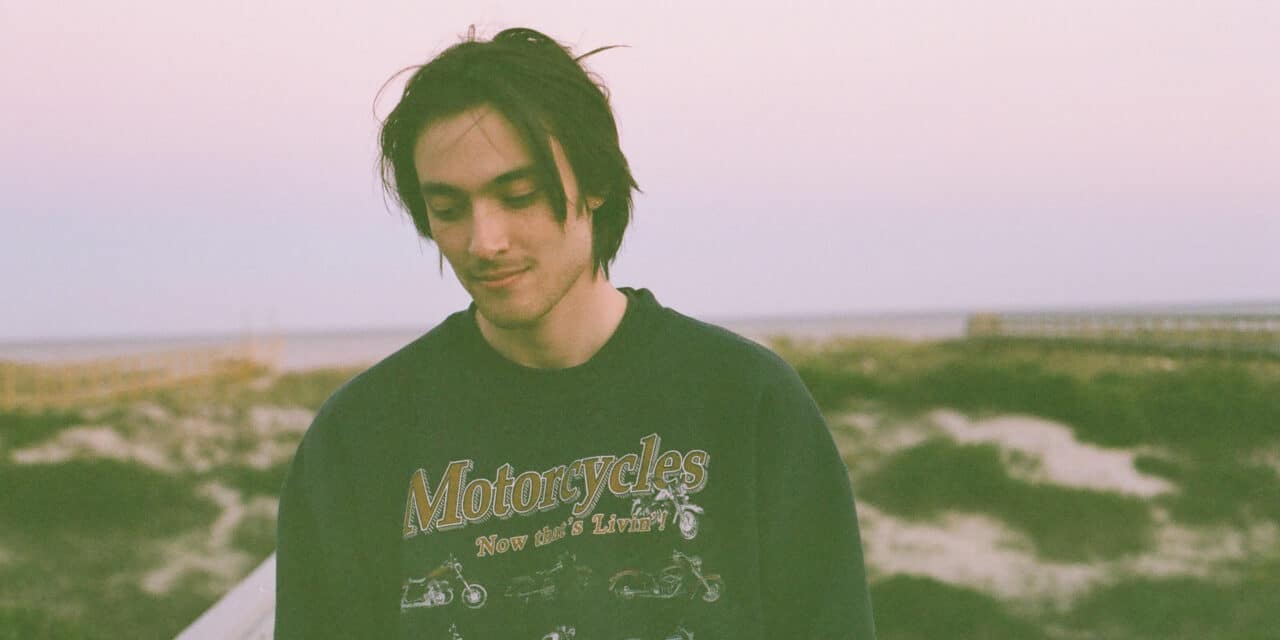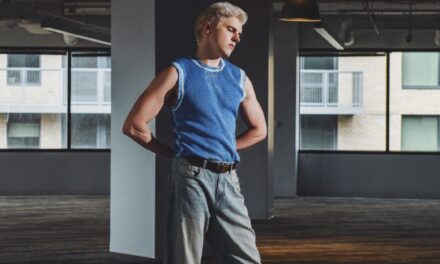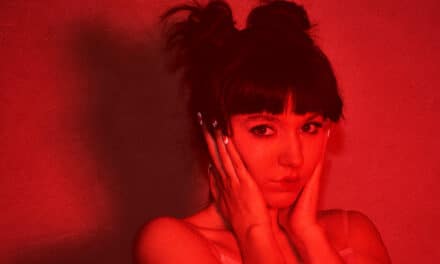Born and raised in Seattle, Zaidi is a Harvard-educated poet whose debut album, produced by Tony Berg, (Phoebe Bridgers, Peter Gabriel, Beck,) explores themes of death, racial identity, quarter-life changes, the loss of innocence and our rapidly decaying planet. “Ben Zaidi’s Blues” finds him at perhaps his most hopeless. “It’s this idea that I don’t want anything to do with this world. This idea of choosing this place where there is no life almost feels desirable when the other option is holding onto hope in a place where that’s dishonest.”
Much of the LP was inspired by a long drive down I-95 from Brooklyn to Florida, where a friend of Zaidi’s had been diagnosed with Stage IV non-Hodgkin’s lymphoma. This was a turning point for Zaidi, as finds himself struggling with confronting morality “And that obviously was the first smack in the face of, ‘Oh, we’re not invincible anymore.’ It’s not like, ‘Oh our whole life is ahead of us stretching out in front of us,; but instead there is a certain frailty that this is all precariously balanced on. And I think the album’s grappling with that”
Tell us about the genesis of your project. How did you get to where you are now?
I started writing songs in middle school, mostly because I didn’t feel I could be myself around other people. Music was a sacred space for me where it was okay to feel however I was feeling, and I became obsessed with the honesty and the sort of ‘freedom from self’ it allowed me. I spent years honing my writing, recording demos in my college dorm room, finding my voice. Now I’ve just finished my debut studio album, a project many years in the making. It’s the first full picture of who I am as a writer and artist. As John Steinbeck would say, it’s my “box with everything in it.”
What are some sources of inspiration for your lyrics and storytelling?
Joni Mitchell, Bob Dylan, Sherman Alexie, George Eliot, Frank Ocean, Denis Johnson, Kendrick Lamar, Phoebe Bridgers.
Who is an artist that you look up to more than others today?
All time favorite record?
John Lennon’s Plastic Ono Band is one of my favorite records of all time. I was listening to it the other day and was astounded how ahead of its time it still sounds. The vulnerability and openness of the singing and playing––it’s like the first-ever ‘bedroom’ album.
Tell us about your latest release and how it came about
‘Ben Zaidi’s Blues’ is the first single from a project I’ve been working on for a long time. The last 9 months of my life have been completely consumed by it, but some of the songs have been in the works for years. This one came out of some poems I wrote after a very fucked up experience I had in Florida, where my grandfather’s house was foreclosed on by the bank literally while he was on his deathbed in the hospital. I went down there with my dad to try and take care of him, and we basically had to get everything we wanted to keep from his whole life out of the house in a matter of hours before the bank came to repossess it. I had just graduated from college and was figuring out how to make the kind of life I wanted, and it just made the whole project of building a life look so empty and fruitless. It fucked me up.
You seem to be fusing several musical genres. What inspires your sound?
Classic singer-songwriters like Joni and Dylan, but also a lot of hip hop. The first album I ever bought was ‘The Eminem Show,’ which still stupefies me with its truly Shakespearean lyrics. For the last 20 years, I think hip hop has dominated the music world in terms of lyrical inventiveness and urgency. Albums like Kendrick Lamar’s ‘Good Kid, Maad City’ and Lupe Fiasco’s ‘Drogas WAVE’ have been huge inspirations in terms of what a songwriter can do with words.
What are some things you do to deal with anxiety and creative blocks?
Writing’s the only thing with a 100% track record of improving my mood. If I’m feeling bad it’s almost always because I’m not writing. When I’m feeling unexcited creatively I try and force myself to write something every day, even if I think it’s bad. Writing bad stuff is an important part of the process. It keeps you from playing it safe.
Where do you see yourself in 5 years?
I have a recurring dream of writing an album in some remote sheep cottage in Ireland or Wales. Drinking tea, walking in a field, writing songs, going into town to go the pub. For a year and a half of COVID lockdown in NYC, that’s been the fantasy keeping me going.
What was the most daunting moment in your career so far?
Entering Sound City Studios in Los Angeles to record this album. So many albums I grew up listening to––Fleetwood Mac, Nirvana, Rage Against The Machine––were made there. It’s one of the most legendary studios in the world. There was something intimidating about it, but also something encouraging. That after so many years of recording myself in bedrooms, dorm rooms, closets––someone had decided I deserved to set foot it there, to join the ranks of those artists.
What is the best advice you’ve ever gotten?
At the start of making this album my producer Tony Berg said to me “you’ve got a lot of beautiful songs, and I think that’s your problem.” His challenge to me to “write something ugly” unleashed my writing, turned this project into the wildest, scariest, and most honest thing I’ve ever made.





